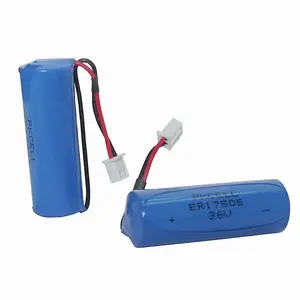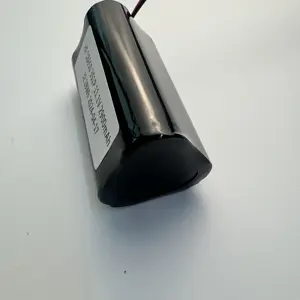Understanding Non Rechargeable Lithium Batteries
Non rechargeable lithium batteries are essential components in a myriad of devices, offering a stable and long-lasting power source. These batteries, also known as primary lithium batteries, are designed for single-use and are not intended for recharging. Their chemistry is tailored to provide a high energy density and a long shelf life, making them suitable for a wide range of applications.
Types and Applications
Lithium aa non rechargeable batteries are a common type, often used in small electronic devices such as remote controls, clocks, and aa 1.5 volt lithium non rechargeable batteries for blink camera systems. On the other hand, lithium ion battery non rechargeable variants are found in medical equipment and industrial applications due to their larger capacity and higher voltage outputs. The versatility of these batteries allows them to power everything from personal gadgets to critical electronic equipment.
Features and Materials
The materials used in non rechargeable lithium batteries include lithium metal or lithium compounds, which provide a stable and reliable power source. These batteries are known for their ability to withstand extreme conditions, resisting heat and corrosion effectively. The construction of lithium metal non rechargeable batteries ensures a secure energy supply, with robust casings to prevent damage and leakage.
Advantages of Using Lithium Batteries
One of the main advantages of using aa non rechargeable lithium batteries is their long service life. These batteries are engineered to last longer than their host appliances in many cases, reducing the need for frequent replacements. Additionally, the 1.5 volt lithium non rechargeable batteries offer a significant advantage in devices requiring a consistent voltage, as they maintain a stable power output throughout their life.
Compatibility and Selection
Selecting the right battery involves considering compatibility with the device. It is crucial to match the specifications of the aa 1.5 v lithium metal non rechargeable batteries with the requirements of the appliance to ensure optimal performance. While these batteries are compatible with a range of devices, it is important to check the compatibility with lithium and lead-acid components if the device supports multiple battery types.
Environmental and Safety Considerations
While non rechargeable aa lithium batteries are known for their efficiency and durability, it is important to handle them responsibly. Disposal should be carried out in accordance with local regulations, as improper handling can pose environmental risks. Safety datasheets and guidelines provided by manufacturers should be followed to ensure that the batteries are used within their intended parameters.


































 浙公网安备 33010002000092号
浙公网安备 33010002000092号 浙B2-20120091-4
浙B2-20120091-4